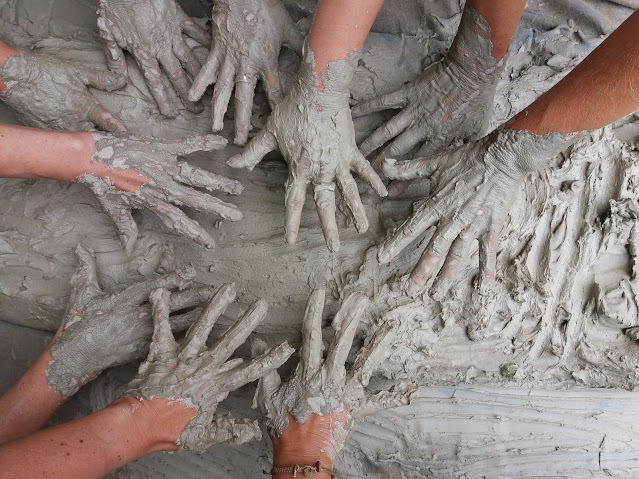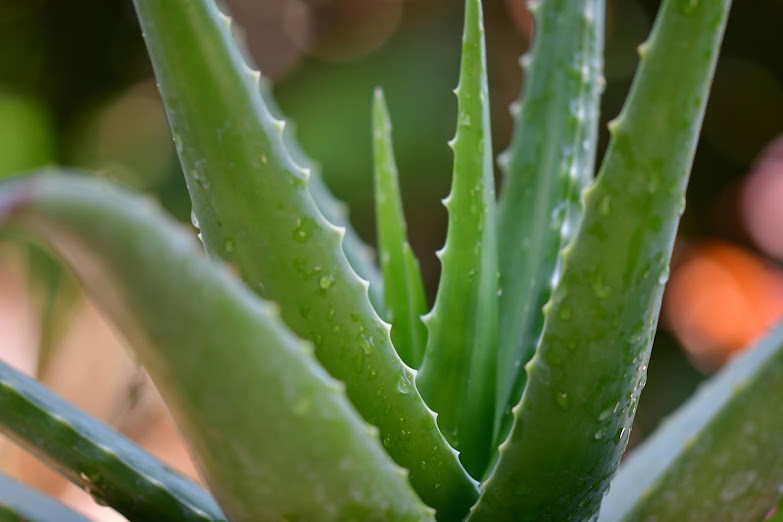How To Remove Pimples Naturally
Written by: Swati on:
While I love my science-y skincare products, I also love going back to age old Indian Ayurveda and using our potent herbs and ingredients. When used wisely, patiently and consistently, these ingredients offer a ton on benefits.
They also offer 2 main advantages :
a. They are readily available locally
b. You can combine them to suit your skin type and needs.
I have already spoken about some skincare habits and products which can be included to help reduce breakouts in the previous post - Read PART I here
Here are some amazing natural ingredients which are found easily in India & can be used to reduce pimples & breakouts, calm and soothe the skin along with many other benefits. Read on!
1) Turmeric
A powerful anti-inflammatory which has been used in Ayurveda for centuries. It is also antimicrobial & has antioxidant properties (properties confirmed by scientifics studies now) - making it a good ingredient for acne prone skin. It also has skin brightening properties. From the many varieties of turmeric available, Kasturi Manjal is the one to choose when it comes to skincare. Add only a pinch to your face masks since it is a potent ingredient! Or get hold of pre packaged Kasturi Manjal.
These are the ones I like :
Shesha Ayurveda White Kasturi Manjal (for sensitive skin)
Shesha Ayurveda Yellow Kasturi Manjal
Blend It Raw Apothecary Kasturi Majal
2) Honey
Probably one of the oldest skincare ingredients, honey is a good humectant! It is moisturizing, soothing, antibacterial & antifungal. It also is an antioxidant and helps with wound healing.
The darker the honey, the richer is the antioxidant! Use honey for mixing your face masks at home or you can even apply it on its own, leave it on for about 20 minutes and wash it off.
3) Sandalwood
A powerful anti-inflammatory & antiseptic, sandalwood has been used since ages in India. It helps calm down irritated skin and can also be used as a spot treatment on breakouts. In Ayurveda, it is known to relieve pitta dosha and hence it has a cooling nature which helps reduce inflammation. Sandalwood also is an astringent & so helps in reducing appearance of pores. The best way to use sandalwood would be to get a block of pure wood and make the paste yourself at home. If you cannot do that, then look for a high quality pure sandalwood powder - it does not come cheap and I would be suspicious of powders that are low priced.
4) Clay
- Bentonite - A fantastic oil absorber, this clay comes in different colours. White is rich in boron & fluoride ; Yellow in manganese & zinc ; Green in copper, zinc & manganese ; Pink in boron. This clay is well suited for oily skin as it absorbs sebum efficiently from the pores & helps in unclogging them. Bentonite has a negative charge & so it attracts things with a positive charge like bacteria. Don't use it very often as it can be drying and do not mix it in a metal bowl.
- Kaolin - A fine white powder, this is a naturally occurring hydrous aluminium silicate. Like all clays this also absorbs excess sebum & makes the skin matte. But is is milder & more gentle than bentonite, therefore less drying. Can be used by dry skin too.
- Multani Mitti/ Fuller's Earth - rich in magnesium chloride, it absorbs excess oil/sebum, helps in cleaning the pores thereby preventing pore clogging. It is especially suited for oily skin.
Mix a pinch of clay of your choice in your homemade masks, keep it on till 80% dry and wash it off. You can even use it in selective areas, like a more oily T-zone.
If you cannot find these clay locally, then our picks are :
Blend It Raw Apothecary Bentonite Clay
Blend It Raw Apothecary Kaolin Clay
Forest Essentials Multani Mitti
5) Gramflour
A beneficial ingredient especially for oily skin gramflour/besan absorbs excess oil/sebum, cleans the skin and also provides very gentle exfoliation.
Mix the powder with rosewater or plain water and you can use it wash your face once a day. I used besan as my cleanser for years & it worked well for my oily skin in my teens.
6) Rose Water
Available as a hydrosol of Damask Roses or Kannauj Roses, this flower water is refreshing, soothing & can be used a toner. Spritz a light layer on the face post cleansing or use it to mix your face masks. Make sure that the rose water is 100% steam distilled and of good quality.
Very cheap ones like Dabur Gulabri is not rose water - it is water mixed with fragrance & rose oil.
Our top picks :
Shesha Ayurveda Rose Water
Juicy Chemistry Bulgarian Rose Water
7) Oats
Colloidal oatmeal (finely ground whole oats) is good for sensitive or itchy skin, dry skin and even conditions like eczema. it has beta-glucan- soothing, lipids and omega fatty acids - barrier repairing/skin protecting and has antioxidants & anti inflammatory agents too.
8) Neem
A very powerful herb it is antibacterial, antifungal & anti-inflammatory. It can be effective on breakouts. Add a pinch/tiny amount to your face masks as this herb is potent.
Our Picks :
Blend It Raw Apothecary Neem Powder
Your friendly neighbourhood Neem Tree
9) Yoghurt
Curd/Dahi contains natural lactic acid which is a mild exfoliant and helps to remove dead skin cells gently. It also has good skin hydrating properties. Use it as a mixing medium for homemade masks.
Our picks :
Go to your fridge!
10) Aloe Vera
Aloe gel or juice is a good anti-inflammatory ingredient along with having some anti bacterial & moisturizing properties. It helps in would healing & skin regeneration.
Good quality (colour & additive free) Aloe Vera can be applied all over as a soothing mask or can be used as a medium to mix masks.
Our Picks :
Your potted aloe plant (if you already have one, great! If you don't, perhaps it's time to pot one?)
Vilvah Aloe Vera Gel
The Face Shop Jeju Aloe Fresh Soothing Gel (great for the body)
** Please keep in mind that like everything else, natural ingredients can also cause allergies. Please do a patch test before using homemade masks & any of these ingredients. They might work well for extremely sensitive skin.
** While these can help control problems to an extent, they are not a treatment for chronic acne and similar skin conditions. Please visit a dermatologist.




















0 thoughts